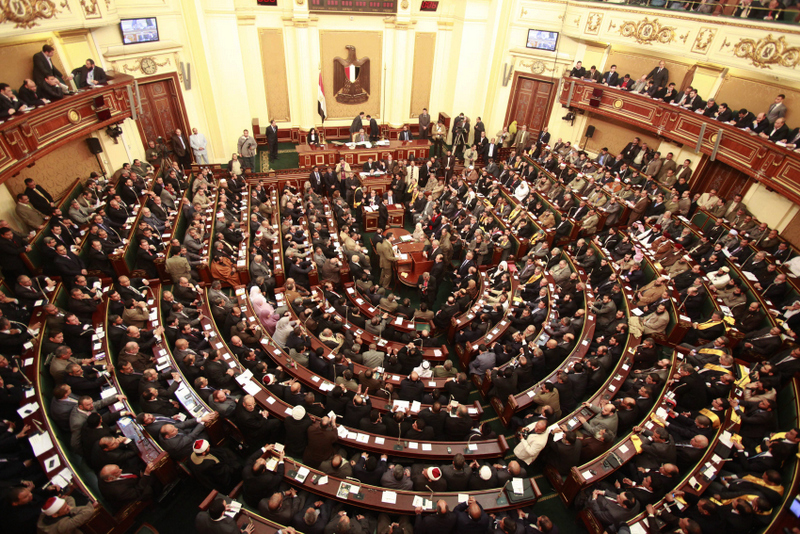CAIRO: While a recent survey finds that global consumer confidence has plunged to a new record low in the past six months, some experts argue that Egypt will shrug off any possible recession and that signs of economic growth have unleashed consumer optimism among the wealthier sectors of Egyptian society.
“Egypt is much more broadly diversified and has a strong domestic consumer market which is only now being realized. I still see the retail boom continuing for quite a long time in Egypt, and I don’t think the industry has yet caught up with inherent demand in Egypt, said Angus Blair, head of research at Beltone Financial.
“Suddenly, investors are realizing Egypt’s massive domestic market, and the country is going to see very strong growth in retail space and its domestic market. It’s not a tourist [but a homegrown] phenomenon and that is a very positive dynamic.
According to last month’s Nielsen Consumer Confidence Index, consumer confidence worldwide in the last six months has fallen to its lowest level in several years, sinking six points to 88 – its largest single drop in the last three years. Meanwhile, in Egypt, the Consumer Confidence Index has slightly dropped two percent in the last six months reaching 77 percent.
The largest half-yearly survey of its kind, the Nielsen Global Online Consumer Survey was conducted last April among 28,153 internet users in 51 markets from Europe, Asia Pacific, North America, and the Middle East.
Realizing Egypt could be on the verge of a spending boom, Arab and foreign investors are pouring money into the most populous Arab country, despite a global credit crisis and threats of a latent slowdown.
Recent statistics show that Egypt has seen a resurgence of confidence fueled by some economic reforms including cuts in taxes and duties, a surging stock market, and growth of foreign direct investment (FDI), which has soared to a record $11.1 billion last fiscal year. Overall, the economy has grown at 7.1 percent last fiscal year, its fastest rate in at least two decades.”The main thing to do is to make sure that economic growth continues to be as strong as possible, Blair pointed out. “When you have that strong economic growth, you have investment, and then people spend. By spending you create the market-buyer effect, which people see all through the society.
Naturally such a healthy rise in consumer spending spells record profits for investors operating on the country, from real estate developers and construction material manufacturers to banks and retailers. The majority of banks and companies have recently released a string of positive first quarter financial results.
However, the Nielsen survey finds that for many emerging countries particularly in Eastern Europe and Asia that have enjoyed the fruits of economic growth and boom in recent years, the last six months have been a stark wake-up call as consumers find themselves struggling with double-digit inflation, rising unemployment rates and stagflation for the first time in a decade.
Inflation remains high on the list of concerns in Egypt, Blair said. “But it’s a global issue. Prices are rising [worldwide], and inflation is not unique to Egypt.
Egypt’s high economic growth rate has triggered inflation pressure, which hit a three-year high of 16.4 percent in the year to April. Analysts expect inflation to shoot to 20 percent within a few months when the government’s latest hikes in prices of gasoline, cigarettes, and energy for intensive industries reflect on the consumer price index.
“This is the great threat to the boom this year: that households are no longer able to afford discretionary consumer spending because of inflation, Simon Kitchen, economist at regional investment bank EFG-Hermes, told Reuters last month.
However, the Nielsen data shows that inflation is not the number one concern to the majority of Egyptians surveyed in the index as much as unemployment. “Sixty-four percent of the Egyptians rank unemployment as their major concern, exceeding the inflation which is a major concern to 38 percent of the Egyptians, stated the survey. In contrast, global consumers rank inflation as their biggest concern (61 percent) followed by unemployment (53 percent).
As for recession fears among Egyptians, the survey finds that 25 percent of Egyptian consumers see a global recession coming within the coming year, compared to a 28 percent who don’t think so and a majority of forty six percent left undecided.
Fifty-six percent of global consumers, meanwhile, believe they are currently in the midst of a recession, and 26 percent believe the situation will escalate into a full blown global recession in the next year.


